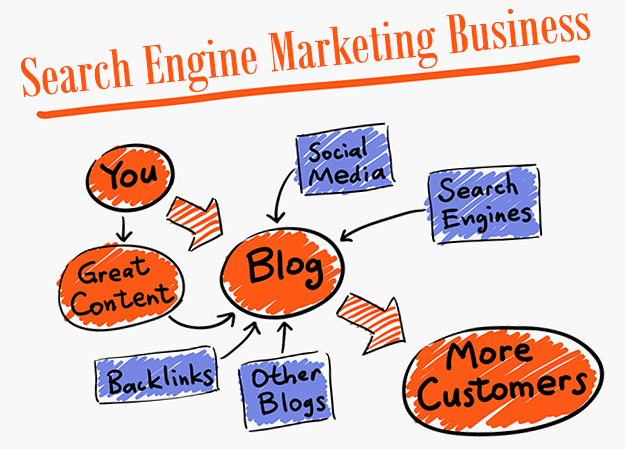We naturally make certain mental connections when we hear particular phrases. For example, when we hear the phrase ‘workplace injury’. we would likely draw a connection to construction workers or assembly-line workers who get a herniated disc after lifting a heavy object. It’s a natural connection to make. After all, workers in construction and manufacturing do suffer many workplace injuries every year.
But it might come as a surprise to some employers that a large number of workplace injuries and illnesses occur in more unassuming locations – namely, the everyday, average office building. Thousands of workers suffer injuries in an office environment every year, ranging from mild sprains that require no time off of work to catastrophic injuries that are debilitating and, in some cases, fatal.
What are these dangers that lurk in our office buildings, and what can we do to ensure the safety of office employees?
Read More: How To Choose The Best Printer For Your Office
Common Dangers for Office Workers
Falls – Did you know that workplace falls in offices occur at a rate two to two-and-a-half times greater than those in non-office work environments? Not only are falls the most common injury in the workplace — they also have the potential for some of the greatest damage. Falls can result in broken bones, sprains, spinal cord damage and traumatic brain injuries, to name just a few.
Tip: Keep floors free from clutter and look out for anything that might cause employees to slip or trip, such as loose, broken flooring or slick surfaces.
Being Struck by or Against an Object – Yet another surprising form of injury suffered in office environments is being struck by an object. This could mean bumping into an object, being hit by a thrown object or any number of scenarios in which a person comes into contact with a moving or stationary object.
Tip: Safely store equipment so it poses no threat to workers. Always make sure that drawers are closed, and be mindful of fingers and hands when closing drawers.
Airborne Contaminants and Poor Air Quality – Indoor air quality control should be a top priority of any office space. Hazards can include asbestos, mold and chemical contaminants. Depending on the level of contamination and the sensitivity of each individual worker (especially if they are allergic to a particular substance), airborne hazards can cause serious illness.
Tip: Regularly have your workplace inspected for air quality and immediately address any hazards that might be present. If there are toxins or other airborne hazards present in your office building, make sure your employees evacuate the building until it is safe to return.
Read More: 10 Tips To Memorize All Necessary Information Before Exams
Lifting Injuries – Workers in office buildings regularly move items around, whether lifting boxes full of printer paper, carrying packages from an inbox or simply moving commonplace desk items from one spot to another. These seemingly innocuous tasks can lead to strained muscles or herniated discs if done improperly or if a pre-existing condition is present.
Tip: Never pick up an object unless you are sure of how heavy it will be, and don’t be afraid to ask for help from a co-worker if an object is heavy enough to pose a risk. Remember proper lifting techniques and always lift with your knees. Also, don’t lift anything while seated. This can cause serious strain on your body and lead to injury.
Posturing and Ergonomic-Related Injuries – One of the most basic yet overlooked aspects of ensuring office workers are not injured on the job is optimizing the setup of a workspace. As simple as it might seem, the position of a chair, the height of a desk or the distance that a worker sits from their workstation can have a major impact on a worker’s health. If a worker is constantly in a state of poor posture or strains to do their jobs, they can quickly develop problems with their back, shoulders, wrists, and neck. Over time, a condition can worsen to become a serious injury that lingers with a worker for years to come. For example, an office worker who is repeatedly straining to reach their keyboard might be at a greater risk for developing carpal tunnel syndrome.
Tip: Arrange a workspace so that it fits the person using it. Make sure that the chair is the proper height and that the worker never has to strain or reach very far to perform basic, repetitive functions.
Eye Strain – Now more than ever before, workers endure a significant amount of strain to their eyes. While screens in and of themselves do not permanently damage the eye, eye strain can lead to other problems that might hinder a worker’s productivity. Eye strain can cause headaches, blurred vision, dry eyes and difficulty focusing, to name just a few problems. Much like ergonomic-related injuries, eye strain might also be addressed by a properly situated workspace.
Read More: Free Student Guide To Help You Achieve Exam Success
Tip: Remind workers to take breaks from the screen from time to time. Suggest lubricating eye drops (the kind without preservatives) for workers with dry eyes. Other ways to reduce the effects of computer screens on workers’ eyes is to make sure that the screen is level with their line of sight and adjusting the brightness of a screen to the liking and comfort of the person using it.
Not only does reducing these hazards make for a safer workplace, but it also creates a more productive work environment. Happier and healthier employees are much more likely to be efficient and productive in their jobs. Consider an investment in maintaining and improving the safety of your office space as a way to improve worker morale in addition to improving the workflow of your business.
The Occupational Safety and Health Administration says that businesses collectively spend $170 billion on workplace injuries and illnesses. OSHA goes on to say that by taking steps to address workplace health and safety, businesses can reduce these costs by up to 40 percent.
As you can see, working in an office doesn’t come without risks. It is up to employers and supervisors to keep an eye out for these hazards and to regularly inspect and address anything that might pose risks to their employees. If you see something in your office that looks like it might be a work hazard, inform your employer of the problem immediately. You might just be saving your coworkers from a workplace injury.
Read More:






















